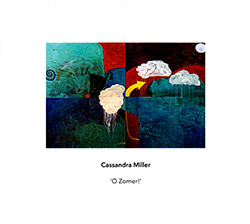
Two ensemble works and two solo pieces by Christian Wolff's favourite contemporary composer, Cassandra Miller, who is blazing a very personal trail through the experimental music world, with brilliant performances by Apartment House, Mira Benjamin, Philip Thomas, and Charles Curtis with the BBC Scottish Symphony Orchestra, conducted by Ilan Volkov.
In Stock
Quantity in Basket: None
Log In to use our Wish List
Shipping Weight: 3.00 units
EU & UK Customers:
Discogs.com can handle your VAT payments
So please order through Discogs
Sample The Album:
Cassandra Miller-composer
Apartment House-ensemble
Philip Thomas-piano
Clemens Merkel-whistling
Mira Benjamin-violin
Charles Curtis-cello
BBC Scottish Symphony Orchestra-orchestra
Ilan Volkov-conductor
Click an artist name above to see in-stock items for that artist.
Label: Another Timbre
Catalog ID: at126
Squidco Product Code: 26339
Format: CD
Condition: New
Released: 2018
Country: UK
Packaging: Cardboard Gatefold
Tracks 1 and 2 were recorded at the University of Huddersfield, in May, 2017.
Track 3 was recorded at St John the Baptist's Church, Dethick, near Matlock, Derbyshire, in May, 2018.
Track 4 is the BBC recording of the premier performance at the Tectonics Festival at the Grand Hall, Glasgow in May, 2015.
"Interview with Cassandra Miller by Another Timbre
Extracts from the extended interview with Cassandra Miller in the Canadian Composers Series booklet accompanying the ten CD's in the series.
What did you make of Linda Catlin Smith's comments in her interview about Canadian composers having a kind of freedom, with no pressure to fit in because they are so removed from and 'unexamined by' the major cultural centres and traditions of the world?
It's really interesting to hear Linda say that, and I've said similar things myself. When I grew up in Canada and went to the University of Victoria as an undergraduate I had nothing to compare it with because I didn't know that anything else existed. That was my first encounter with the idea of what musical composition was. Christopher Butterfield was my teacher - he still teaches there - and in my second year we flew Linda Smith out to give us some lessons, and Martin Arnold's music was being played all the time - I remember hearing his piece Contact; Vault played for what must have been nearly the first time. So this was just normal to me and only when I came to Holland ten years later to do my masters' degree did I start to understand what the European scene was like. The idea that there was a career composer, someone who had a career and thought that was important, and the idea that there was this thing called 'culture' which had a certain importance to it, that was something which I'd never even considered or heard of. The idea that culture somehow speaks to human consciousness or was important to humans in general, I'd just never come across that concept. I think Linda was trying to explain to a European what they'd find if they showed up in Canada, whereas I grew up in Canada and then went to Europe and thought 'hey, what is this?'
I felt this sense of free outsiderness growing up in Victoria, and you find it a bit in Vancouver, and then Toronto has gone through phases of being very strange. Certainly Arraymusic has been a centre of strangeness, though coming and going through the 80's and 90's. I was there in I think 1998 doing their Arraymusic workshop, and Linda Smith was around and lots of other lovely people and it had this very free feeling. I think the story of English Canada is that it teeters between very free and wonderful and strange, and then kind of non-existent, with not enough energy to get things going, where people are abandoned and there's not really a conversation. Some years are more one thing and some more the other. So there's a lot of times when we're struggling and nothing's happening, but you won't hear about it over here, and then it'll tip over into being quite amazing, and then you will hear about it.
So when you went to the University of Victoria as an undergraduate without having heard of this European notion of music as culture, what sort of music were you into, and why did you go there?
Well I went thinking I was going to study harp because I was quite a serious harpist when I was young. But then on my first day I took an elective class for composition with Christopher Butterfield, and it was clear by the end of the first hour that I wasn't going to be a harpist any more, that I was going to be a composer.
It was that quick? What happened?
I can't remember exactly what happened in that class, but it was a really good group of students that year. There were about twenty of us, and André Cormier was there, but Christopher Butterfield just had such a great way of teaching. He's very interested in absurdity, and is influenced by Dada art, so he tends to present art as being interesting only if you can't really understand it, and that it's normally made by someone on the margins, not by some canonical figure. And he had a way of talking about it so that we didn't really distinguish between Schoenberg and Webern on the one hand and Wilhelm Killmayer on the other - who even in Germany people haven't heard of, though he's amazing. So there'd be all these very odd figures, like Harry Partch and so on, in a way the stranger the better. To learn about Webern for the first time in that context, you think 'God, he's weird!'
Which he is in a way, but one weirdness among others rather than the official weirdness.
Exactly, we had no idea that there was an official weirdness. Two years later there was the twentieth century techniques class where you'd analyse all the canonical stuff. But until then we didn't get the sense that there was a canon. We thought composers were like Linda Smith, not like Lachenmann or anyone with a canonical reputation.
So you ended being there for ten years?
Yes, it was ten years before I graduated. It was a four year programme, which is normal in North America, and I never took full-time course load because I'm a bit slow at stuff. So normally I would have finished within six years, but after six years I still had a couple of credits to get and I was a bit desperate to leave town, so I moved to a small island outside of Victoria. At that time I was having big problems with writing block, which I'd struggled with throughout the six years, but it came in larger and larger waves. I'd had my first quasi-professional commission before I moved to Salt Spring Island and I was late handing it in, and I kept just staring at a blank piece of paper for months. I was so miserable that I thought 'shit, I don't need to do this', so I quit. So I went to live on Salt Spring Island and did a bunch of other things. I was a choir director for a while and a homecare worker, and I sort of pieced together work as you do on these small islands, where you don't really have a regular job. After two or three years I ran out of money and ran back home to my mother at the age of 29, and she wasn't very well at that time either. I ended up getting a job as a house-cleaner for a year. Then I got inexplicably ill; I was really dizzy and couldn't stand up. I slowly got better but I still didn't have any energy, and I went to see my doctor and he said 'Aren't you a musician?' I said, 'Well I was... A couple of credits away from graduating.' He said, 'Well I don't think you're going to get better until you go back to school.' He was right. I went back to school and got better and very quickly finished my bachelor's degree, but ten years after I'd started. Then immediately after that I went to Holland for my masters.
[.........................]
Tell us about the Duet for Cello and Orchestra, which was so well received at the Tectonics Festival in 2015?
Well that's something that I'm still trying to get my head around. Funnily enough I'd sort of been in contact with Ilan Volkov, the conductor of the BBC Scottish Symphony Orchestra who organises Tectonics, for quite a while. When I was organising the concert series in Montréal I'd sent him an email saying if you ever want to do a project in Canada let me know. But I don't think he would even remember this because we never heard back, and we didn't really have enough money to make anything serious materialise anyway, though we liked to dream. But the Tectonics thing really came out of James Weeks and EXAUDI, because they'd asked me to write a piece - Guide - which they then performed when they were at Tectonics. So that was when Ilan Volkov will have first heard my music, and I guess he looked into the rest of it, and then he approached me out of the blue to ask me to write a piece for Tectonics the next year. He said that Charles Curtis would be there and did I want to write a concerto for him.
So that was presented to you, it wasn't your proposal?
No that was Ilan's idea, and I was like 'O my God, ok'.
I know Charles Curtis has done minimal things before, but it must have taken some nerve to have a performer of that ability and present them with a solo part in a concerto that is so minimal.
Well it was all a bit strange because I knew that I wanted the orchestral part to be based on this Italian folk song because I knew I wanted the orchestral quality of what that was going to become. But I didn't know what I was going to do with cello part. So I arranged to meet Charles Curtis in Paris when he was there and we worked together for a week. At that point I was still giving him all sorts of versions of the folk song to try out. And, although it was wonderful to get to talk to him about music and get a sense of his personality, none of it really worked musically. So at the end of the week I still had no idea what to do with the cello. But I knew how long it takes to write all the orchestral parts, so I thought well, I've just got to get on with that and trust that something will come up for the cello part linked to the Italian folk song. So I finished the orchestra part and was very happy with that, but I still didn't know what to do with the cello. People who knew me thought I was insane to do it this way, and to be honest I was shitting bricks, trying all different things with the folk song but getting nowhere. Then one time I tried something out on my computer, but didn't like it, so deleted the cello part, but for some reason it only half deleted it and what was left was this one-five-one. So when I pressed play I heard by accident what it sounded like together and I thought, 'Oh shit, that's it!'
So that was a very happy accident, but then because it was for Charles Curtis it kind of made sense it being so minimal. But it's funny when people ascribe me the credit of thinking of something like that, because I can't claim it, though I suppose I can take credit for choosing to go with it once I'd found it. But when I sent it to him I was still anxious about what he'd think, and he's not much of an emailer, so all I could get back was 'Well I have to admit I am a bit perplexed.' But then I think he grew to like it quite a bit, and at least understand why I'd want to do that. I think as soon as he's on stage it becomes clear why it has to be him playing it. I mean other people could do it perhaps, but he's just so still when he performs it, it feels like it's his piece really, his personality.
I want to ask about voice in your music. In general I'm not that keen on voices in contemporary music, but your work is one of those cases where somehow I do get it, and in fact even in pieces where you don't have a vocal part, it feels like there's a singing or cantabile quality to your music. Do you think that's true?
Yes for sure, and in fact this has become the topic for my PhD. The word I use is 'vocality', which is a kind of musicality about the voice. I've used transcription in my practice for a while, but I discovered recently that all this stuff I'd been transcribing was actually about the voice. Either it was a transcription of something directly vocal, or it was a performance where someone had done something on an instrument that seemed to me to have a vocal quality, like with Pemi Paull playing the Bach chorale, and through transcribing it I was trying to grab that quality. And that realisation has led me to my most recent work, which is quite different, and is largely based around the voice, where either I myself or a collaborator singing is part of the composition process for the piece.
I'm always drawn to the voice. I find it the most engaging thing; when I'm listening to anything if I hear a human voice I'm just immediately engaged. It's as simple as that. Now you say you don't like voice in contemporary music, but perhaps in a way we're a little bit similar. Because I think that what you're reacting against is an element of presentation that normally occurs with the performing voice, and what I'm most interested in is when the voice somehow gets away from that. The voice is so complex and we understand so much from it that can't be described. And I think that my interest in the voice and your lack of interest in the voice are both about trying to find a space where it's not about this performance thing or public identity.
Right now the work I'm doing started with a piece I tried to write for a viola d'amore, for Jennifer Thiessen, and I ended up writing her more or less a vocal piece. She does meditation and I had her sing along to things while she was meditating and we'd record it. Then I'd play back the recording and she'd sing along to that, and so on until it slowly degraded into something that sounds a lot like sighing, and that became the piece. And then that led on to my collaboration with Silvia Tarozzi, a violinist in Italy, where it's largely between her as an improviser and me as a singer. But I'm not a singer, I'm a terrible singer, but we've made some pieces where I'm meditating and going into a trance and singing into my computer. And I'm such a bad singer that again it gets away from this performerliness. And I'm trying some of these techniques now with the soprano Juliet Fraser, which is very different because she's such a trained singer, but she also has this interesting relationship with public identity and performerliness. So together we're trying to find a space that's much more intimate and vulnerable, which in her case becomes really interesting because she's got this extraordinary instrument.
This reminds me so much of Frank Denyer's piece A Woman Singing, which Juliet performs in an amazing intimate way, and is one of those few contemporary pieces for voice that I really can relate to.
Exactly, most people when they present their voice, because it's so personal, it becomes so performative and polished by the time it's published. It's rare to hear something that comes from that other space.

The Squid's Ear!
Artist Biographies
• Show Bio for Cassandra Miller "Cassandra Miller (1976) is a Canadian composer living in London, and is Associate Head of Composition (Undergrad) at the Guildhall School of Music and Drama. Her present work involves direct and personal collaboration with solo musicians, engaging in embodied research related to non-notated collaborative practices and the place of voice and body in creative processes. Her notated compositions for ensembles and orchestras explore the transcription of pre-existing music as a way to translate its musicality/vocality into another experience. Teaching takes a central role in her artistic life, holding the faculty position at Guildhall since September 2018. Her teaching philosophy prioritizes inclusivity and diversity, and questions canonization. Previously, she taught composition modules at the University of Huddersfield (2014-16) and the University of Victoria (2008-09). She twice received the Jules-Léger Prize for New Chamber Music, Canada's highest honour for composition, for Bel Canto in 2011 and About Bach in 2016. Her concerto written for the cellist Charles Curtis with the BBC Scottish Symphony Orchestra was hailed as an 'unexpected highlight of the festival' (TEMPO). Her works are often written with specific performers in mind, involving their intimate participation in the creative process. Her closest collaborators in this fashion have included soprano Juliet Fraser, the Quatuor Bozzini, conductor Ilan Volkov, cellist Charles Curtis, pianist Philip Thomas, violinist Silvia Tarozzi and violinist Mira Benjamin. Pieces written expressly for them have been toured and performed across the UK, Netherlands, Belgium, Germany, Austria, Italy, Norway, Uruguay, the United States and Canada. Over the last 15 years she has received over 25 professional commissions from soloists, ensembles and orchestras both in Canada and across Europe. Notable performers include the BBC Scottish Symphony Orchestra, the Oslo Philharmonic, EXAUDI Vocal Ensemble, the London Sinfonietta, I Musici de Montréal, Ensemble Plus-Minus, the late great Ensemble Kore, Ensemble contemporain de Montréal, Continuum Contemporary Music, the Toronto Symphony Orchestra and the Winnipeg Symphony Orchestra. Festivals and venues featuring her music have included Monday Evening Concerts (Los Angeles), Tectonics Glasgow, the Huddersfield Contemporary Music Festival, Only Connect Oslo, Ostrava Days, World Music Days (Ljubljana), Music we'd like to hear (London), Kammer Klang (Café OTO, London), Transit (Leuven), Music on Main (Vancouver), and Núcleo Música Nueva de Montevideo, among many others. In 2015, the AngelicA Festival of Bologna presented three concerts featuring her work. After two decades working in the field, Cassandra returned to academic research in 2014. Her doctoral research at the University of Huddersfield (supervisor Dr Bryn Harrison, 2018) explored transcription and other translation methods as compositional processes, and compositional engagements with varied notions of voice and vocality. In 2012, she studied privately with Michael Finnissy, whose impact continues to have a deep effect on her work. She holds a Master of Music from the Royal Conservatory of the Hague (2008, Richard Ayres, Yannis Kyriakides), where she explored narratology and narrative as tools for musical analysis. She holds a Bachelor of Music from the University of Victoria (2005), where she studied with Christopher Butterfield, whose radical pedagogical inclusivity and Dada-inspired artistic insight remain crucial foundations for her work to date. From 2010 to 2013, she held the post of Artistic and General Director of Innovations en concert, a not-for-profit presenter of experimental chamber music concerts and festivals in Montreal. Under her directorship, the organization championed unusual programming, commissioned major new works, and became known for its support of young freelancers, building international connections for many Quebec artists. Cassandra has been invited to give lectures about her work in the US at Columbia University; in the UK at the Royal Academy of Music, Bath Spa University Centre for Musical Research, Birmingham Conservatoire, Guildhall School of Music and Drama, Centre for Research in New Music in Huddersfield, and Brunel University; in Canada at McGill University, the Cluster New Music and Integrated Arts Festival, and the Open Space Gallery of Victoria. She has additionally taught masterclasses and workshops at the Orkest de Ereprijs Young Composers Meeting (NL), Brunel University, the University of Manitoba, and the Montreal Contemporary Music Lab. A number of writings about her work have been published in recent years, notably, Along the grain: the music of Cassandra Miller (James Weeks, 2014, TEMPO, Vol 68, Issue 269), and Cassandra Miller's unclassifiable concert music (Richard Simas, 2012, Musicworks Magazine, Toronto, Issue 113). In Tim Rutherford-Johnson's book Music After The Fall: Modern Composition and Culture Since 1989 (2017, University of California Press), Chapter 4 includes an in-depth discussion of her piece Guide, through the lens of the tension between oral traditions and media technology. Her music also appears on the podcast Tentative Affinities (2014, Canada: the music of Generation X) by the late musicologist Bob Gilmore." ^ Hide Bio for Cassandra Miller • Show Bio for Philip Thomas "Philip Thomas (b.1972, North Devon) specialises in performing new and experimental music, including both notated and improvised music. He places much emphasis on each concert being a unique event, designing imaginative programmes that provoke and suggest connections. He is particularly drawn to the experimental music of John Cage, Morton Feldman and Christian Wolff, and composers who broadly work within a post-Cageian aesthetic. In recent years he has been particularly associated with the music of Christian Wolff, giving the world premiere of his Sailing By in 2014 and Small Preludes in 2009, the UK premiere of Long Piano (Peace March 11), having co-edited and contributed to the first major study of Wolff's music, Changing the System: the Music of Christian Wolff, published by Ashgate Publications in 2010, and currently recording all of Wolff's solo piano music for sub rosa. He is an experienced performer of John Cage's music, having performed the Concert for piano and orchestra with both Apartment House and the Merce Cunningham Dance Company as well as most of the solo piano and prepared piano music, including a unique 12-hour performance of Electronic Music for piano He has commissioned new works from a number of British composers whose ideas, language and aesthetic have been informed in some ways by the aforementioned American composers, such as Stephen Chase, Laurence Crane, Richard Emsley, Christopher Fox, Bryn Harrison, John Lely, Tim Parkinson, Michael Parsons, and James Saunders. In recent years Philip has pursued a passion for freely improvised music, after significant encounters with the music of AMM and Sheffield-based musicians Martin Archer, Mick Beck and John Jasnoch. He has worked with improvisers in a variety of contexts and recently devised a programme of composed music by musicians more normally known as improvisers as well as others who have been influenced by improvisation in some form. This led to a CD release, Comprovisation, which featured newly commissioned works by Mick Beck, Chris Burn and Simon H Fell. Other CD releases include music by Martin Arnold, Laurence Crane, Christopher Fox, Jürg Frey, Bryn Harrison, Tim Parkinson, Michael Pisaro, James Saunders, Christian Wolff, as well as with improvisers Chris Burn and Simon H Fell. Philip is a regular pianist with leading experimental music group Apartment House, with whom he has performed in festivals across the UK and Europe. He has also performed with the Quatuor Bozzini, and in duos with Mark Knoop, Ian Pace and John Tilbury (piano duet and two pianos) and James Saunders (electronics). In 1998 Philip was awarded a PhD from Sheffield University in the performance practice of contemporary piano music. Between 2000 and 2005, he was Head of the Sheffield Music School whilst pursuing an active performing and teaching career. He joined the staff team at the University of Huddersfield in 2005, and became Professor of Performance in 2015. Philip is one of the Directors of CeReNeM, the University's Centre for Research in New Music. He continues to live in Sheffield, where he premieres the majority of his programmes, with his wife Tiffany and children Naomi and Jack." ^ Hide Bio for Philip Thomas • Show Bio for Clemens Merkel "Clemens Merkel's unconventional sound defines a new sensibility in contemporary music, through its intimate purity of tone, its settled understanding of microtonal or unconventional harmonic language, and its unhurried sensitivity. He is well known for innovative interpretations of Bach and John Cage, and is sought after by composers worldwide as an inspiration for new repertoire. His diverse collaborators range from the Wandelweiser collective to Montréal's Musique Actuelle community, and from emerging experimentalists to today's most revered composers. For over a decade, Merkel's unusual sound has fused with that of the Quatuor Bozzini, considered one of the world's leading string quartets. Together they have mentored an entire generation of creators through the Composer's Kitchen; have released numerous critically acclaimed albums on their collection qb label; undertake multiple tours annually to be featured at festivals worldwide; and maintain a profound impact on the music scene across Canada and Europe in particular. They nourish Montréal audiences with unusual self-produced events that bridge worlds and cross boundaries of style, generation and culture. Following an early career in Europe, where he contributed to the continent's leading ensembles, Merkel has made Montréal his home since 2000. He supports and advocates for new music in Québec and in Canada, and is regularly sought after as speaker, curator and adviser. His presence is felt in academia as well, through articles written for the Revue Circuit, and through his teaching at Concordia University. He's a passionate chef and lives in Montréal's Portuguese neighborhood together with his wife Isabelle Bozzini and children Félix and Béatrice." ^ Hide Bio for Clemens Merkel • Show Bio for Mira Benjamin "Mira Benjamin is a Canadian violinist, researcher and new-music instigator. She performs new and experimental music, with a special interest in microtonality & tuning practice. She actively commissions music from composers at all stages of their careers, and develops each new work through multiple performances. Current collaborations include new works by Anna Höstman, Scott McLaughlin, Amber Priestley, Taylor Brook and James Weeks. Since 2011, Mira has co-directed NU:NORD - a project-based music and performance network which instigates artistic exchanges and encourages community building between music creators from Canada, Norway & the UK. To date NU:NORD has engaged 79 artists and commissioned 62 new works. Through this initiative, Mira hopes to offer a foundation from which Canadian artists can reach out to artistic communities overseas, and provide a conduit through which UK & Norwegian artists can access Canada's rich art culture. Originally from Vancouver, British Columbia, Mira lived for ten years in Montréal, where she was a member of Quatuor Bozzini. Since 2014 she has resided in London (UK), where she regularly performs with ensembles such as Apartment House, Decibel, and the London Contemporary Orchestra Soloists, and is currently the Duncan Druce Scholar in Music Performance at the University of Huddersfield. Mira is the recipient of the 2016 Virginia Parker Prize from the Canada Council for the Arts. The prize is awarded annually to a Canadian musician in recognition of their contribution to the artistic life in Canada and internationally." ^ Hide Bio for Mira Benjamin • Show Bio for Charles Curtis "Cellist Charles Curtis is an internationally renowned performer and composer of a wide variety of music, with particular emphasis on the avant-garde. Curtis is most strongly associated with minimalism, modern classical, and so-called "downtown music." A graduate of the prestigious Juilliard School, Curtis has since been involved with the music department at Princeton University and at the University of California, San Diego, where he has served as Professor of Contemporary Music Performance since the year 2000. Curtis has studied under such masters as vocalist Pandit Pran Nath and composer La Monte Young and still regularly records and performs." ^ Hide Bio for Charles Curtis • Show Bio for Ilan Volkov "Born in Israel in September 1976, Ilan Volkov began his conducting career at the age of nineteen. Following studies at London's Royal College of Music, he secured positions as Principal Conductor of the London Philharmonic Youth Orchestra and Assistant Conductor of the Boston Symphony. In 2003 he was appointed Principal Conductor of the BBC Scottish Symphony Orchestra and subsequently became its Principal Guest Conductor in 2009. Between 2011 and 2014 he held the post of Music Director and Principal Conductor of the Iceland Symphony Orchestra. Volkov's arrival coincided with the opening of Harpa, Reykjavík's visually striking new concert hall. During his tenure in Iceland, he created the Tectonics Festival, which features programmes of classical modern music combined with other new music genres such as improvisation, electronics and rock. Since then, Tectonics has expanded around the world with residencies in cities like Glasgow, Adelaide, Oslo, New York and Tel Aviv." ^ Hide Bio for Ilan Volkov
7/9/2025
Have a better biography or biography source? Please Contact Us so that we can update this biography.
7/9/2025
Have a better biography or biography source? Please Contact Us so that we can update this biography.
7/9/2025
Have a better biography or biography source? Please Contact Us so that we can update this biography.
7/9/2025
Have a better biography or biography source? Please Contact Us so that we can update this biography.
7/9/2025
Have a better biography or biography source? Please Contact Us so that we can update this biography.
7/9/2025
Have a better biography or biography source? Please Contact Us so that we can update this biography.
Track Listing:
1. O Zomer! 8:06
2. Philip The Wanderer 14:37
3. For Mira 6:06
4. Duet For Cello And Orchestra 31:58
Compositional Forms
Large Ensembles
Canadian Composition & Improvisation
New in Compositional Music
Last Copy of Items that will not be restocked...
Search for other titles on the label:
Another Timbre.

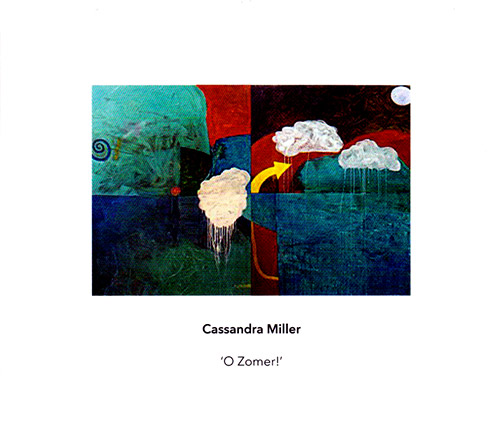



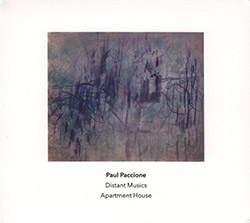

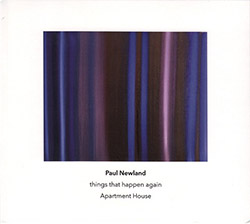
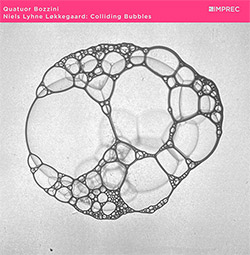

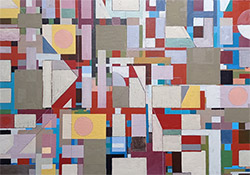
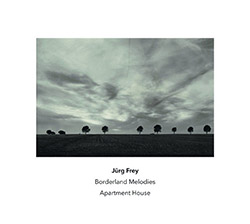
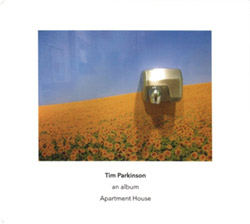
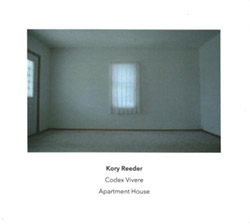
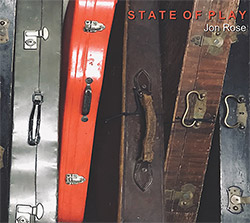
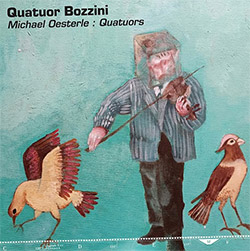



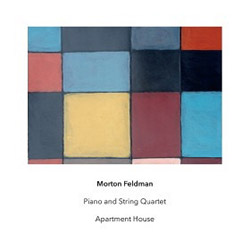
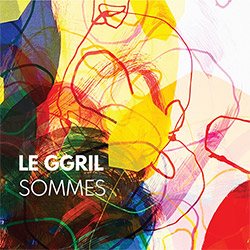
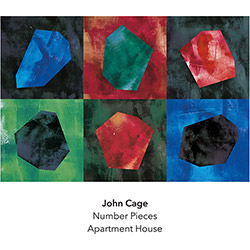
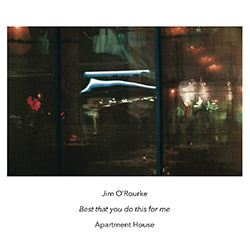


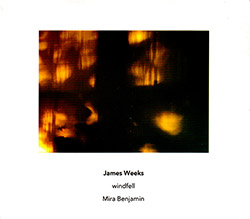






![BlueRing Improvisers: Materia [2 CDs]](https://www.teuthida.com/productImages/misc4/36513.jpg)








![Wheelhouse (Rempis / Adasiewicz / McBride): House And Home [VINYL]](https://www.teuthida.com/productImages/misc4/36462.jpg)
![+DOG+: The Light Of Our Lives [2 CDs]](https://www.teuthida.com/productImages/misc4/36009.jpg)


![Parker, Evan / Jean-Marc Foussat: Insolence [VINYL]](https://www.teuthida.com/productImages/misc4/36398.jpg)










![Deupree, Jerome / Sylvie Courvoisier / Lester St. Louis / Joe Morris: Canyon [2 CDs]](https://www.teuthida.com/productImages/misc4/36404.jpg)



![Eventless Plot | Haarvol: The Subliminal Paths [CASSETTE + DOWNLOAD]](https://www.teuthida.com/productImages/misc4/36232.jpg)










![Eventless Plot | Francesco Covarino: Methexis [CASSETTE + DOWNLOAD]](https://www.teuthida.com/productImages/misc4/36231.jpg)



![Das B (Mazen Kerbaj / Mike Majkowski / Magda Mayas / Tony Buck): Love [VINYL]](https://www.teuthida.com/productImages/misc4/36329.jpg)


![Eternities: Rides Again [CASSETTE]](https://www.teuthida.com/productImages/misc4/36247.jpg)
![Lopez, Francisco: Untitled (2021-2022) [2 CDs]](https://www.teuthida.com/productImages/misc4/36438.jpg)






![Money : Money 2 [2 CDs]](https://www.teuthida.com/productImages/misc4/35894.jpg)




![Klinga, Erik: Elusive Shimmer [VINYL]](https://www.teuthida.com/productImages/misc4/36258.jpg)
![CHANGES TO blind (Phil Zampino): Volume 9 - I Wave on a Fine Vile Mist [CD + DOWNLOAD]](https://www.teuthida.com/productImages/misc4/36061.jpg)

![Wallmart / Rubbish: Asset Protection [split CD]](https://www.teuthida.com/productImages/misc4/35900.jpg)


![+Dog+: The Family Music Book Vol. 5 [2 CDs]](https://www.teuthida.com/productImages/misc4/35897.jpg)
![Kuvveti, Deli : Kuslar Soyledi [CASSETTE w/ DOWNLOAD]](https://www.teuthida.com/productImages/misc4/36107.jpg)

![Brown, Dan / Dan Reynolds: Live At The Grange Hall [unauthorized][CASSETTE]](https://www.teuthida.com/productImages/misc4/36245.jpg)







![Palestine, Charlemagne / Seppe Gebruers: Beyondddddd The Notessssss [VINYL]](https://www.teuthida.com/productImages/misc4/36206.jpg)
![Palestine, Charlemagne / Seppe Gebruers: Beyondddddd The Notessssss [NEON GREEN VINYL]](https://www.teuthida.com/productImages/misc4/36207.jpg)

![Laubrock, Ingrid: Purposing The Air [2 CDs]](https://www.teuthida.com/productImages/misc4/35639.jpg)

![Yoko, Ono / The Great Learning Orchestra: Selected Recordings From Grapefruit [2 CDs]](https://www.teuthida.com/productImages/misc4/35841.jpg)









![Zorn, John / JACK Quartet: The Complete String Quartets [2 CDs]](https://www.teuthida.com/productImages/misc4/35609.jpg)

![Lonsdale, Eden: Dawnings [2 CDs]](https://www.teuthida.com/productImages/misc4/35480.jpg)

![Sorry For Laughing (G. Whitlow / M. Bates / Dave-Id / E. Ka-Spel): Rain Flowers [2 CDS]](https://www.teuthida.com/productImages/misc4/35985.jpg)

![Rolando, Tommaso / Andy Moor : Biscotti [CASSETTE w/ DOWNLOADS]](https://www.teuthida.com/productImages/misc4/36106.jpg)


![Electric Bird Noise / Derek Roddy: 8-10-22 [CD EP]](https://www.teuthida.com/productImages/misc4/35970.jpg)








![Elephant9 : Mythical River [VINYL]](https://www.teuthida.com/productImages/misc4/34624.jpg)



![Elephant9 with Terje Rypdal: Catching Fire [VINYL 2 LPs]](https://www.teuthida.com/productImages/misc4/35355.jpg)
![Deerlady (Obomsawin, Mali / Magdalena Abrego): Greatest Hits [VINYL]](https://www.teuthida.com/productImages/misc4/34876.jpg)







![Surplus 1980: Illusion of Consistency [CD]](https://www.teuthida.com/productImages/misc4/35069.jpg)
![Staiano, Moe: Away Towards the Light [VINYL + DOWNLOAD]](https://www.teuthida.com/productImages/misc4/35037.jpg)
![Coley, Byron: Dating Tips for Touring Bands [VINYL]](https://www.teuthida.com/productImages/misc4/17906.jpg)

![Lost Kisses: My Life is Sad & Funny [DVD]](https://www.teuthida.com/productImages/misc4/lostKissesDVD.jpg)